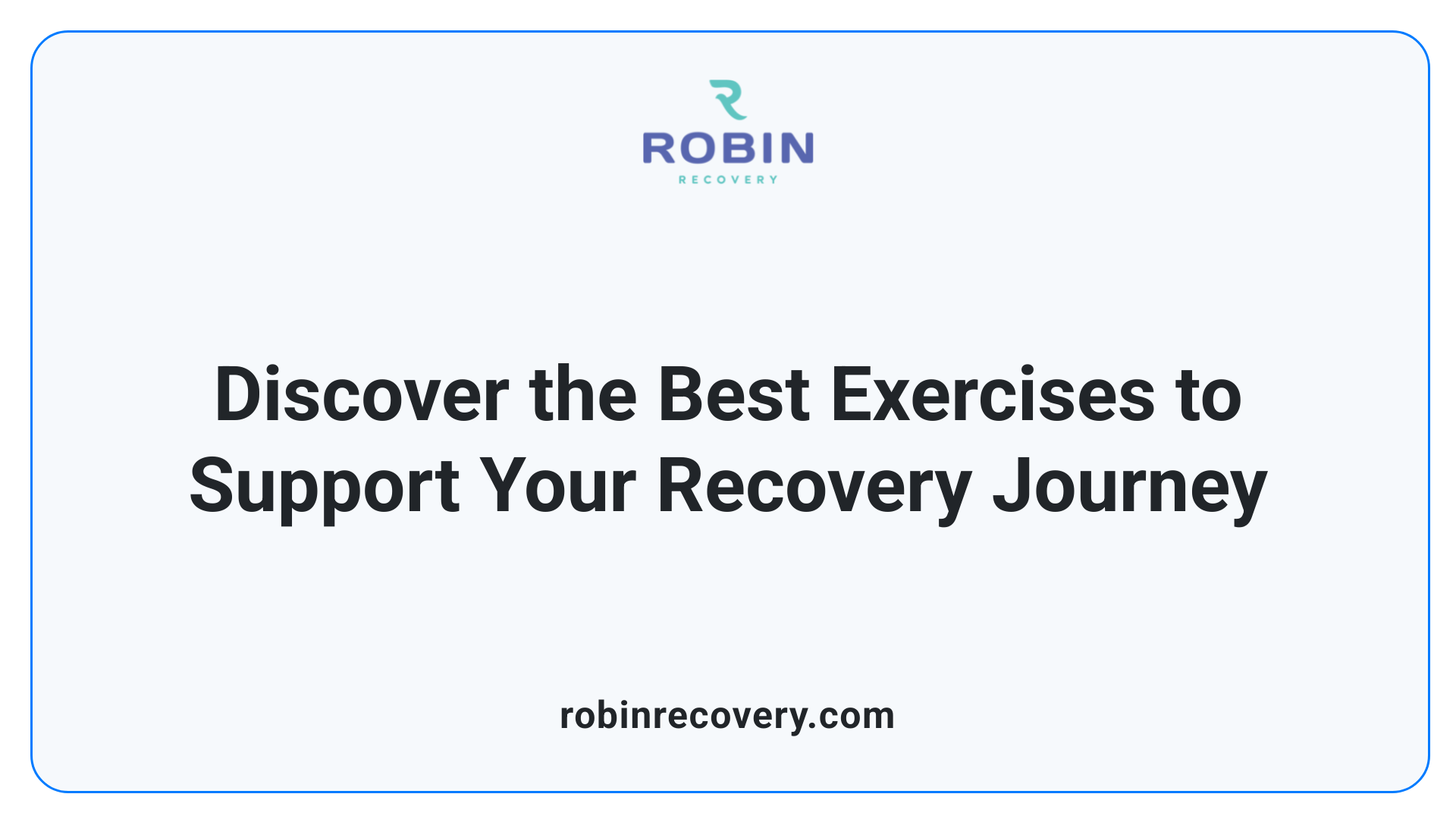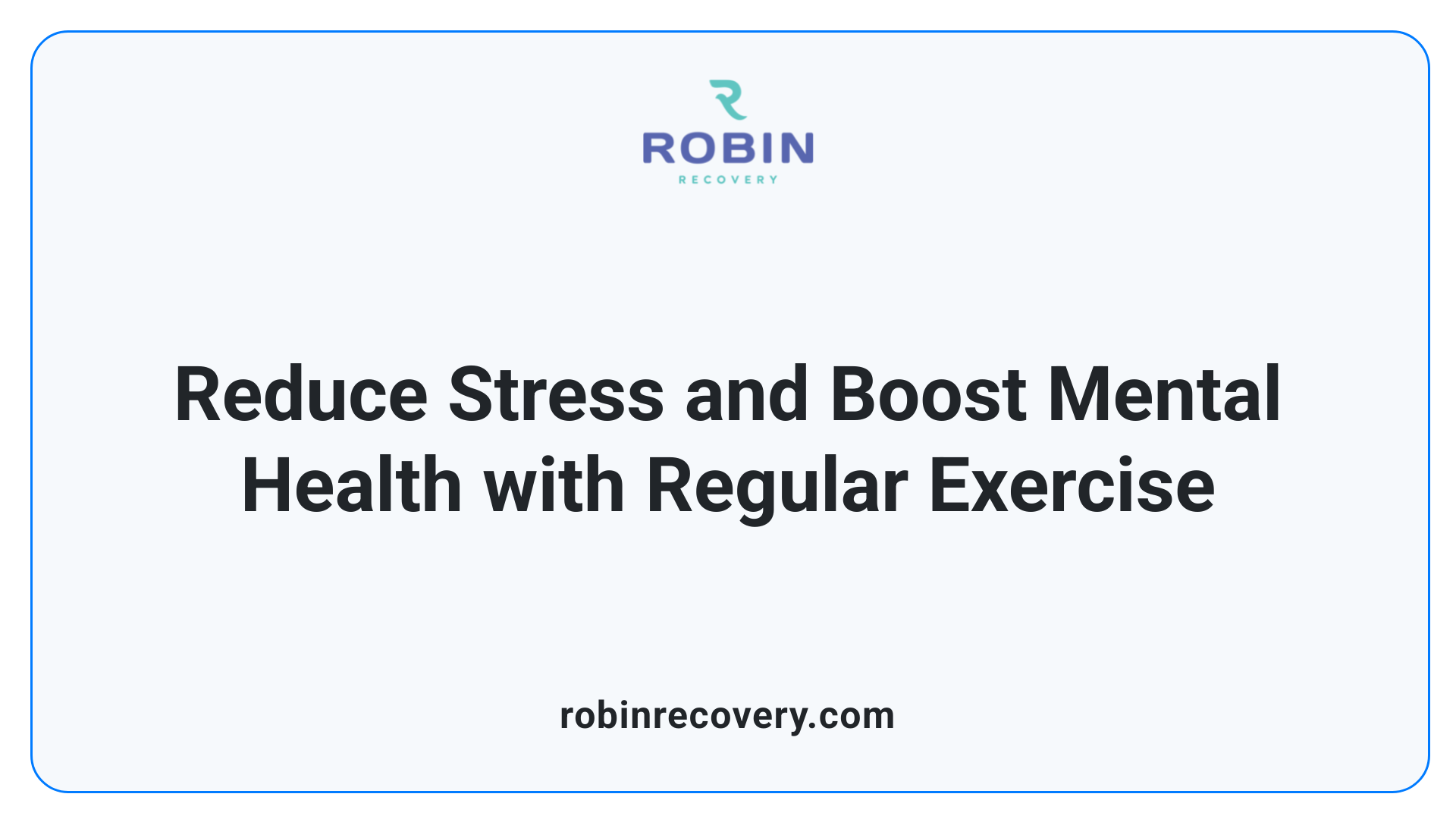How Exercise Promotes Healing in Addiction Recovery

Unlocking the Power of Physical Activity in Addiction Healing
In the journey of overcoming addiction, physical activity emerges as a powerful, evidence-based tool that supports both the mind and body. Exercise not only alleviates withdrawal symptoms and reduces cravings but also fosters psychological resilience, social connections, and overall well-being. This comprehensive approach integrates exercise into holistic addiction treatment, emphasizing its neurobiological, psychological, and social benefits, ultimately facilitating sustained sobriety and deep healing.
The Role of Exercise in Addiction Recovery
What is the role of exercise in addiction recovery?
Exercise is an essential component in supporting individuals through the process of overcoming addiction. It provides physical benefits by improving cardiovascular health, boosting energy, and repairing damage caused by substance abuse. Mentally, exercise releases feel-good chemicals such as endorphins, serotonin, and dopamine, which help elevate mood, reduce feelings of anxiety and depression, and stabilize emotions.
One of the most significant advantages is its ability to curb cravings and ease withdrawal symptoms like irritability, stress, and fatigue. Physical activity serves as a healthy substitute for addictive substances by activating the brain's reward pathways, providing a natural 'high' similar to the chemical effects of drugs. Moreover, exercise offers structure and routine—filling idle time, reducing triggers, and supporting consistency, which are vital in preventing relapse.
Engaging in regular physical activity enhances self-esteem and body image, helping individuals rebuild confidence lost through addiction. Group exercises foster social connections, accountability, and community support—elements crucial in sustaining recovery. Additionally, exercise improves sleep quality, which is often disrupted during detox and recovery phases.
Research supports the positive impacts of exercise in addiction recovery. Both preclinical and clinical studies demonstrate that regular physical activity can lower drug-seeking behavior, decrease relapse rates, and promote long-term abstinence. Overall, incorporating exercise into addiction treatment plans enriches recovery strategies, contributes to overall well-being, and facilitates a sustainable path to sobriety.
Physiological and Neurochemical Benefits of Exercise

What scientific mechanisms support exercise as an aid in overcoming addiction?
Exercise influences the brain's chemistry in ways that are highly beneficial for individuals in recovery from substance use disorders. One primary mechanism involves the activation of the brain's reward pathways. Physical activity stimulates the release of neurotransmitters such as dopamine and serotonin, which are responsible for feelings of pleasure and well-being. These chemicals not only help counteract the deficits caused by addictive substances but also reduce cravings and improve mood, making it easier to stay abstinent.
In addition to neurotransmitter release, exercise promotes neurogenesis—the growth of new brain cells—and enhances neuroplasticity, the brain's ability to reorganize and repair neural networks damaged by addiction. This process supports neurological recovery during withdrawal and reduces the risk of relapse.
Furthermore, physical activity helps decrease withdrawal symptoms like anxiety and depression, common hurdles in recovery. It also stabilizes mood and alleviates stress by reducing cortisol levels and stimulating the creation of neurotrophins such as BDNF, which further supports brain repair.
Engaging in exercise, especially group activities, fosters social support and enhances treatment adherence. These routines generate positive behavioral patterns, filling time with healthy activities that prevent boredom—a trigger for relapse.
In sum, exercise acts as a safe, natural, and effective tool in addiction recovery by activating reward pathways, releasing crucial neurochemicals, reducing negative emotional states, and promoting brain healing. Its integration into treatment plans can bolster long-term abstinence and overall mental health.
Mechanism Neurochemical Effect Impact on Recovery Additional Notes Activation of reward pathways Releases dopamine, serotonin Alleviates cravings, improves mood Supports neurological recovery Neurogenesis & plasticity Increases BDNF, neurotrophins Brain repair, cognitive enhancement Facilitates learning and memory Mood stabilization Releases endorphins, serotonin Reduces anxiety, depression Enhances emotional resilience Stress reduction Lowers cortisol levels Mitigates relapse triggers Acts as a natural stress buffer
For more insights into how exercise impacts neurobiology in addiction recovery, a search for "exercise neurobiology in addiction recovery" can provide recent scientific findings and ongoing research developments.
Physical and Cognitive Benefits Supporting Brain Health

How does exercise support brain health and aid neurological healing in addiction recovery?
Exercise plays a vital role in healing the brain from the impacts of addiction. It stimulates blood flow and oxygen delivery to the brain, which helps repair damaged neural pathways and enhances neuroplasticity — the brain's ability to reorganize itself.
When we engage in physical activity, our brains release chemicals like dopamine, serotonin, and endorphins. These neurotransmitters are often depleted by substance use, and restoring their levels is essential for mental health and emotional stability. Regular exercise, therefore, helps rebalance these chemicals, reducing feelings of depression and anxiety that can trigger relapse.
In addition to biochemical effects, exercise supports the growth of new brain cells through the release of neurotrophins such as BDNF (Brain-Derived Neurotrophic Factor). This process encourages neural repair and connectivity, which is crucial during recovery.
Exercise also helps alleviate withdrawal symptoms like cravings and mood swings, making the recovery process easier to sustain. It distracts from urges to use substances and reinforces healthier decision-making.
Cognitively, physical activity enhances functions such as memory, attention, and decision-making skills. It bolsters executive function, improving inhibitory control, which helps individuals resist temptations and manage stressful situations.
Maintaining active lifestyles influences brain regions involved in addiction, fostering neural resilience and promoting healthier behaviors. Overall, consistent exercise supports neurological healing and underpins long-term recovery from substance dependence.
Beneficial Exercise Types and Structured Routines for Recovery

What types of exercise are beneficial during addiction recovery, and what routines are recommended?
Engaging in various forms of exercise offers multiple benefits for individuals recovering from addiction. Aerobic activities such as walking, running, swimming, cycling, and dancing are highly effective in boosting mood, reducing stress, and increasing energy levels. These activities stimulate the release of endorphins and other chemicals like dopamine and serotonin, creating a natural 'high' that can help diminish cravings.
Practices like yoga and Tai Chi focus on mindfulness, relaxation, and body awareness. These gentle exercises can reduce anxiety and promote mental clarity, which are vital during recovery. Team sports and group fitness classes also play a significant role by fostering social bonds, providing emotional support, and creating a sense of community—factors that reduce feelings of isolation and support long-term sobriety.
Choosing routines that align with personal abilities and preferences ensures greater consistency and enjoyment. Beginners or those with physical limitations might start with low-impact options like walking or swimming, gradually increasing intensity as they build strength and confidence. Incorporating structured exercise into daily life provides stability, helps manage recovery-related cravings, and promotes a positive, healthy lifestyle.
Overall, a balanced mix of aerobic activities, mindfulness exercises, and social involvement — tailored to individual needs — creates an effective, sustainable routine for supporting sobriety and enhancing overall well-being.
Exercise as a Tool for Stress Reduction and Psychological Well-Being

Why is exercise important for reducing stress and improving mental health in individuals recovering from addiction?
Exercise plays a crucial role in alleviating stress and strengthening mental health during addiction recovery. It helps regulate hormones like cortisol, which is elevated during stress, thereby reducing feelings of anxiety and tension.
Furthermore, physical activity triggers the release of chemicals in the brain, such as endorphins, dopamine, and serotonin. These neurochemicals are natural mood boosters, alleviating depression and promoting a sense of well-being.
Engaging in routine exercise also provides a sense of purpose and structure, filling time that might otherwise be vulnerable to triggers or boredom. This regularity can help prevent relapse by establishing healthy habits.
Additionally, exercise acts as a distraction from cravings, helping individuals manage urges by redirecting focus toward physical activity instead of substance use.
Group exercise activities enhance social connections and foster support networks, which are critical factors in overcoming emotional challenges. Sharing physical activities with others builds a sense of community, accountability, and emotional resilience.
Overall, incorporating exercise into recovery offers comprehensive benefits — from physical improvements to psychological stability. It not only helps regulate stress responses but also promotes positive mood, self-confidence, and social support, making it a powerful tool for sustaining sobriety.
Supporting Long-Term Sobriety with Active Living
Integrating exercise into addiction treatment creates a multidimensional pathway for recovery—addressing physical health, mental well-being, neurological healing, and social connectedness. Structured physical activity helps rebuild brain chemistry, reduces cravings, and fosters resilience against relapse. As part of a holistic approach, exercise promotes long-term sobriety by empowering individuals with purpose, confidence, and social support. Continued research and tailored programs will enhance these benefits, making exercise an indispensable component of effective addiction recovery strategies, ultimately paving the way for healthier, more balanced lives.
References
- How Exercise Benefits Addiction Recovery
- Exercise: How It Can Help With Addiction Recovery
- The link between exercise and addiction recovery
- The Benefits Of Exercise In Addiction Recovery
- Exercise-based treatments for substance use disorders
- Role of Nutrition and Exercise in Addiction Recovery
- Eight Benefits of Exercise in Addiction Recovery
- The Role of Exercise and Physical Activity in Overcoming ...
- Holistic Addiction Recovery: Benefits of Exercise and ...
- How Fitness Programs Are Revolutionizing Addiction ...
